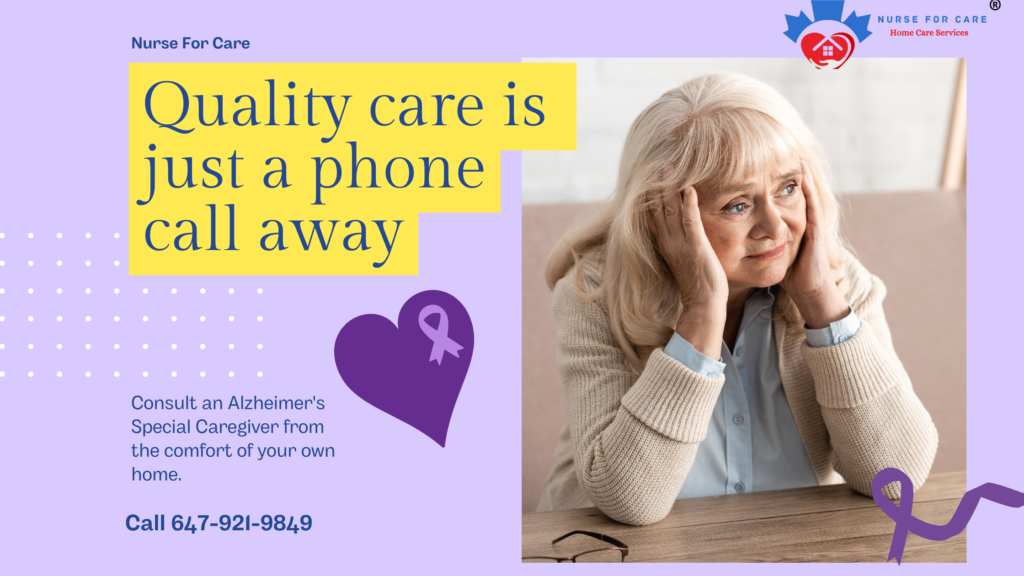
Introduction:
Dementia is a progressive neurological condition that affects millions of individuals worldwide, presenting unique challenges for both those diagnosed and their caregivers. As nurses specializing in care, we must equip ourselves with the knowledge and skills to support families navigating this complex journey. In this comprehensive guide, we’ll explore the multifaceted aspects of dementia care, offering practical advice and emotional support for family caregivers.
Understanding Dementia:
Dementia is not a specific disease but rather a syndrome characterized by a decline in cognitive function severe enough to interfere with daily life. Alzheimer’s disease is the most common form of dementia, accounting for approximately 60-70% of cases, followed by vascular dementia, Lewy body dementia, and other less common types.
Early signs of dementia may include memory loss, difficulty with communication, impaired reasoning and judgment, and changes in mood or behavior. However, it’s essential to recognize that everyone may experience dementia differently, with symptoms varying in severity and progression.
Impact on Individuals and Families:
A diagnosis of dementia not only affects the individual but also has profound implications for their family members and caregivers. The emotional toll can be overwhelming as families struggle with grief, uncertainty, and the challenges of providing care while balancing other responsibilities.
As nurses, it’s crucial to acknowledge and address the emotional needs of both the individual with dementia and their caregivers. Providing empathetic support and creating a safe space for open communication can help families cope with the psychological impact of the diagnosis.
Effective Communication Strategies:
Communication can become increasingly challenging as dementia progresses, but there are strategies that caregivers can employ to facilitate meaningful interactions:
- Simplify language and use clear, concise sentences.
- Maintain eye contact and speak at a slow pace.
- Use visual aids, gestures, and touch to enhance communication.
- Practice active listening and validate the individual’s feelings and experiences.
Creating a Supportive Environment:
Adapting to the home environment is essential to ensuring the safety, comfort, and well-being of individuals with dementia. Consider the following tips:
- Remove hazards and clutter to prevent falls.
- Install handrails, grab bars, and other safety devices as needed.
- Label everyday items and use color coding to aid in recognition.
- Establish daily routines and maintain consistency to reduce anxiety and confusion.
Practical Care Tips for Dementia Patient:
Assisting with the activities of daily living (ADLs) can become increasingly challenging as dementia progresses. Here are some practical tips for caregivers:
- Help with personal hygiene tasks such as bathing, grooming, and toileting.
- Manage medications by organizing pillboxes or using medication reminders.
- Prepare nutritious meals and monitor hydration to ensure adequate nutrition.
- Encourage participation in familiar activities and hobbies to promote engagement and cognitive stimulation.
Coping with Dementia Caregiver Stress:
The demands of caregiving can take a toll on family caregivers’ physical, emotional, and mental well-being. It’s essential to prioritize self-care and seek support when needed:
- Take breaks and enlist the help of family members, friends, or professional caregivers.
- Practice stress-reducing techniques such as deep breathing, mindfulness, or meditation.
- Join a support group or online community for caregivers to connect with others who understand your experiences.
- Don’t hesitate to seek professional help if you’re feeling overwhelmed or experiencing symptoms of depression or anxiety.
Conclusion:
Caring for a loved one with dementia is undoubtedly challenging, but it’s also a profoundly meaningful and rewarding experience. As nurses, we play a crucial role in supporting families on this journey, providing education, guidance, and compassionate care every step.
By understanding dementia, implementing effective communication strategies, creating a supportive environment, and prioritizing self-care, family caregivers can navigate the complexities of dementia care with confidence and resilience. Remember, you’re not alone—reach out for help and support when needed, and celebrate the moments of joy and connection that arise amidst the challenges.
Together, we can make a positive difference in the lives of individuals living with dementia and their families, ensuring that they receive the dignity, respect, and quality of care they deserve.
When it comes to finding the right care for your loved one with dementia, trust is paramount. At Nurse for Care, we understand families’ challenges when seeking support for their loved ones. With over ten years of combined experience and a team of caregivers who are experts in over 40 languages, we are dedicated to providing compassionate and specialized care across Canada. You may learn more about us here.
Our caregivers undergo rigorous training and are equipped with care techniques to ensure the highest quality of care for individuals with dementia. Whether you’re in need of hourly care or 24-7 support, our team is here to help. Visit our website or call us anytime at 647-921-9849 to learn how Nurse for Care can support your family through this journey.
















nordvpn coupons inspiresensation
It’s going to be ending of mine day, however before finish I am reading this wonderful
paragraph to increase my knowledge.
Feel free to surf to my page nordvpn coupons inspiresensation
nordvpn coupons inspiresensation
Simply desire to say your article is as surprising. The clarity
in your submit is simply great and i could think you are knowledgeable in this subject.
Fine together with your permission allow me to seize your RSS feed to stay updated with approaching
post. Thanks 1,000,000 and please keep up the gratifying work.
Here is my page: nordvpn coupons inspiresensation
Nordvpn coupons inspiresensation
Good answers in return of this question with solid arguments
and telling everything on the topic of that.
Take a look at my web site – Nordvpn coupons inspiresensation
nordvpn special coupon code 2025
350fairfax nordvpn special coupon code 2025
Wonderful items from you, man. I have take into accout your stuff previous to and you’re simply too fantastic.
I actually like what you have got right here, certainly like what you are stating and the way in which you assert it.
You are making it enjoyable and you continue to take care of to keep it sensible.
I cant wait to learn much more from you. This is actually a wonderful web site.
eharmony special coupon code 2025
Hi! I’ve been following your weblog for a while now and finally
got the bravery to go ahead and give you a shout out from Huffman Texas!
Just wanted to tell you keep up the excellent job!
Take a look at my webpage: eharmony special coupon code 2025
eharmony special coupon code 2025
Just wish to say your article is as astonishing.
The clarity in your put up is simply great and i could think
you’re a professional in this subject. Fine along with your permission let me to
grasp your feed to keep updated with impending post. Thanks 1,000,000 and
please carry on the enjoyable work.
My blog post – eharmony special coupon code 2025
Vpn
Ridiculous quest there. What occurred after? Good luck!
My web site Vpn
https://tinyurl.com/235hnz7u
Hi there, just became alert to your blog through Google, and found
that it’s really informative. I am going to watch out for brussels.
I will be grateful if you continue this in future.
Many people will be benefited from your writing.
Cheers! gamefly https://tinyurl.com/23ww4xyv